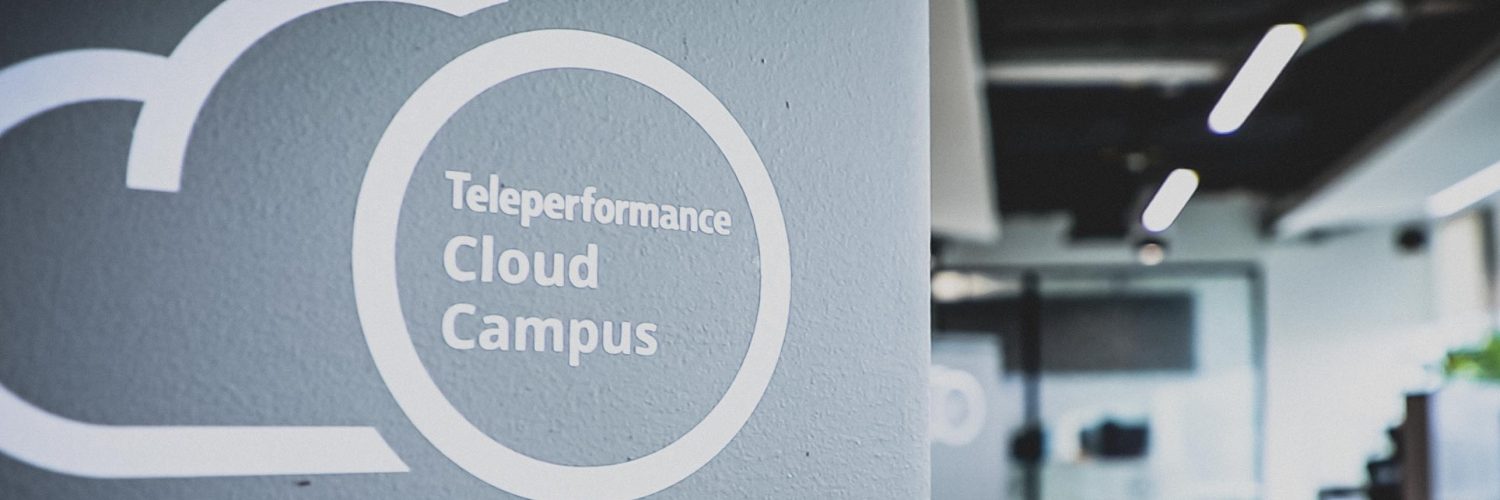The Covid-19 lockdowns that began earlier this year threw the BPO sector into disarray. International media outlets have reported extrensively on the delays and disruptions to service as contact centers across the world suddenly moved their labor force to a work-from-home (WFH) model.
The French BPO giant Teleperformance stood out for its successful handling of the crisis. The company already had standing WFH programs at scale before the pandemic hit. That in-house experience facilitated a seamless transition to remote working in Colombia, which is home to the company’s second-largest global operation after the Philippines.
With the recent launch of its Cloud Campus workforce model, Teleperformance is taking the lead on tackling the challenges of WFH. The platform – which was rolled out in Colombia last month – assists with the hiring, training and management of remote teams across the country. It aims to bolster resiliency, employee engagement and data security.

“One of our main clients allowed us to WFH a few years ago in Colombia,” said Andrés Bernal, the CEO of Teleperformance for Colombia, Guyana, Peru and Nicaragua. “We started to test that concept and we realized that it was very useful.”
Before Covid-19, the WFH program was limited, with almost no other clients willing to embrace it. “The pandemic helped us to break that paradigm and use some of those tools that we had already developed for that particular client,” Bernal said.
Currently more than 100 Teleperformance clients are using WFH, with just five maintaining a traditional on-site model. “Teleperformance Colombia employs 30,000 people,” Bernal said. “Right now, 92% of our population is working from home.”
Rewriting the Rules on Business Continuity
For nearly two decades, 9/11 defined business continuity schemes for the BPO industry. In the years following the terrorist attacks in the United States, corporations introduced new methods to track and communicate with employees. They also drew up plans to quickly move their workforce to buildings away from the city center.
But business continuity was transformed with the arrival of Covid-19. Before the pandemic, remote working at scale was unthinkable for most companies. For clients, the issue of data security represented an insurmountable obstacle. Indeed, such risks remain a challenge for distributed workforces. Trend Micro, a multinational cyber security firm, recently found that 39% of remote workers access corporate data on personal devices that are less secure than their corporate equivalents.
Employers were also nervous that their staff would be less engaged within a WFH environment. BPO executives feared that Key Performance Indicators (KPIs) would dip, while maintaining company culture would be impossible.

The Cloud Campus platform is Teleperformance’s attempt to address these issues.
“Security is the main concern that our clients share with us,” Bernal said. “It is much more difficult to take care of all the variables in a remote location, so we have been developing tools for monitoring the different networks and cable operations that the agents have. That helps us get a better feeling on what is going on in terms of security.”
Bernal said the Cloud Campus platform was organized into a hive-like structure, with a command center from which agents can receive tips and offer feedback. “[We have] a centralized hub where you can monitor and share best practice with your co-workers,” Bernal said. “That [results] in a better solution for clients.”
The platform also boasts tools to facilitate teamwork and professional development, with the aim of supporting employee engagement.
“The KPIs and general performance levels that we are achieving right now are at least the same as when we were running on-site,” Bernal said. “That is proof that the [Cloud Campus] is working.”
Finding the Right Hybrid Mix
Teleperformance’s WFH policies also free the company from the geographic restrictions on their available talent pool. The platform helps the company hire, train and coach staff at distance.
“Before this situation we had just four different locations: Bogotá, Barranquilla, Tunja and Medellin,” Bernal said. “Right now, we have a presence in more than 45 different cities in Colombia. One of the main reasons for doing this is we are able to reach new talent across the country with these solutions.”

Alongside the digital platform, the Cloud Campus also contains physical hubs, allowing for hybrid WFH and on-site capabilities. Bernal said finding the optimal mix for the two working models was a question of trial and error, as well as close consultation with clients.
“The client needs to be involved in all of the solutions that we have been developing,” Bernal said.
The CEO expects at least 95% of clients will eventually opt for a Cloud Campus model.
“As long as they test these solutions, [clients] are going to grow more confident,” Bernal said. “I can see it as a middle and long-term solution in the industry. That is why I believe this [represents] a very important change in how the BPO industry is going to be operating in the future.”
What does it take achieve great outcomes in Nearshore services? If you would like to share an exciting case study or news story drop me a note — Steve Woodman, Managing Editor










Add comment